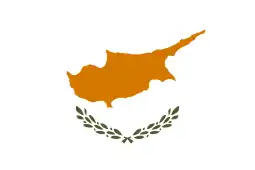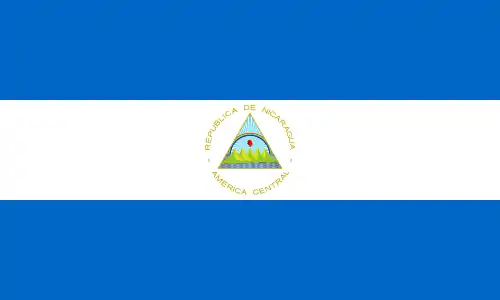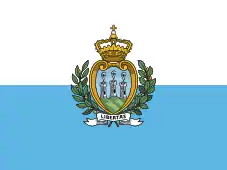Left-wing populism
Left-wing populism, also called social populism, is a political ideology that combines left-wing politics and populist rhetoric and themes. Its rhetoric often consists of anti-elitist sentiments, opposition to the Establishment and speaking for the "common people".[1] Important themes for left-wing populists usually include anti-capitalism, social justice, pacifism and anti-globalization whereas class society ideology or socialist theory is not as important as it is to traditional left-wing parties.[2]
| Part of a series on |
| Populism |
|---|
|
The criticism of capitalism and globalization is linked to anti-militarism, which has increased in the left populist movements as a result of unpopular United States military operations, especially those in the Middle East.[3] It is considered that the populist left does not exclude others horizontally and relies on egalitarian ideals.[1] Some scholars point out nationalist left-wing populist movements as well, a feature exhibited by Kemalism in Turkey for instance or the Bolivarian Revolution in Venezuela.[4] Unlike exclusionary or right-wing populism, left-wing populist parties tend to be supportive of minority rights[5] and to an idea of nationality that is not delimited by cultural or ethnic particularisms.[6]
| Part of a series on |
| Nationalism |
|---|
|
With the rise of Greek Syriza, Spanish Podemos and to some extent the Italian Five Star Movement during the European debt crisis, there has been increased debate on new left-wing populism in Europe.[7][8]
By country
Multinational coalitions
Many leftist and populist political parties in Europe belong to the European United Left–Nordic Green Left.
Germany

The Party of Democratic Socialism was explicitly studied under left-wing populism, especially by German academics.[9] The party was formed after the reunification of Germany and it was similar to right-wing populists in that it relied on anti-elitism and media attention provided by a charismatic leadership.[10] The party competed for the same voter base with the right-wing populists to some extent, although it relied on a more serious platform in Eastern Germany. This was limited by anti-immigration sentiments preferred by some voters, although the lines were for example crossed by Oskar Lafontaine, who used a term previously associated with the Nazi Party, Fremdarbeiter ("foreign workers"), in his election campaign in 2005.[10] The PDS merged into the Left Party in 2007.[11]
Greece
Syriza, which became the largest party since January 2015 elections, has been described as a left-wing populist party after their platform incorporated most demands of the popular movements in Greece during the government-debt crisis. Populist traits in Syriza's platform include growing importance of "the People" in their rhetoric and "us/the people against them/the establishment" antagonism in campaigning. On immigration and LGBT rights, Syriza is inclusionary. Syriza itself does not accept the label "populist".[12][13]
Italy
The Italian Five Star Movement (M5S), which became the largest party in the 2018 general election, has been often described as a big tent populist party,[14][15] but sometimes also as a left-wing populist movement;[16] in fact the "five stars", which are a reference to five key issues for the party, are public water, sustainable transport, sustainable development, right to Internet access, and environmentalism, typical proposals of left-wing populist parties.[17] However, despite its leftist background, the M5S has often expressed rightist views on immigration.[18]
In September 2019, the M5S formed a government with the centre-left Democratic Party (PD) and the left-wing Free and Equal (LeU), with Giuseppe Conte at its head.[19][20] The government has been sometimes referred to as a left-wing populist cabinet.[21]
Netherlands
The Socialist Party has run a left-wing populist platform after dropping its communist course in 1991.[22] Although some have pointed out that the party has become less populist over the years, it still includes anti-elitism in its recent election manifestos.[23] It opposes what it sees as the European superstate.
Spain
.jpg.webp)
The left-wing populist party Podemos achieved 8 percent of the national vote in the 2014 European Parliament election. Due to avoiding nativist language typical with right-wing populists, Podemos is able to attract all leftist voters disappointed with the political establishment without taking sides in the regional political struggle.[24] At the 2015 election for the national parliament, Podemos reached 20.65% of the vote and became the third largest party in the parliament after the conservative People's Party with 28.71% and the Spanish Socialist Workers' Party with 22.02%. In the new parliament, Podemos holds 69 out of 350 seats and this result ended the traditional two-party system of Spain.[25] In a November 2018 interview with Jacobin, Íñigo Errejón argues that Podemos requires a new "national-popular" strategy in order to win more elections.[26]
United Kingdom
Argentina
Cristina Fernández de Kirchner (the President of Argentina from 2007 to 2015) and her husband Néstor Kirchner were said to practice Kirchnerism, a variant of Peronism that was often mentioned alongside other Pink tide governments in Latin America. During Cristina Fernández de Kirchner time in office, she has spoken against certain free trade agreements such as the proposed Free Trade Area of the Americas. Her administration was characterized by tax increases, especially on agricultural exports during the late 2000s commodities boom, Argentina's main export, in order to fund social programs such as the PROGRESAR university scholarships, the universal allocation per child subsidy (commonly referred to as AUH in Argentina, Asignación Universal por Hijo), a means-tested benefit to families with children who qualified for the subsidy, and progressive social reforms such as the recognition of same-sex marriage.
Brazil
In Brazil, the biggest popular leader is Luis Inacio Lula da Silva, the 35th President of Brazil, who promoted changes of broad popular support based on his policy to combat social inequality, generating a movement called lulism.
Bolivia
The leadership of Siles Zuazo practiced left-wing populism[27] as well as that of former socialist President Evo Morales.[28]
Ecuador
Rafael Correa, the former President of Ecuador, has stressed the importance of a "populist discourse" and has integrated technocrats to work within this context for the common Ecuadorians. In the conflict between the indigenous peoples and the government, Correa has blamed foreign non-governmental organizations for exploiting the indigenous people.[29][30][31]
Venezuela
The presidency of Hugo Chávez resembled a combination of folk wisdom and charismatic leadership with doctrinaire socialism.[28] Chávez's government was also described to have been a "throwback" to populist nationalism and redistributivism.[32]
United States
Huey Long, the fiery Great Depression-era Governor-turned-Senator of Louisiana, was an early example of left wing populism in the United States, advocating for wealth redistribution under his Share Our Wealth plan. Meanwhile, Bernie Sanders, a self-described democratic socialist, is an example of a modern left-wing populist politician.[33]
Left-wing populist political parties
Current left-wing populist parties or parties with left-wing populist factions
Represented in national legislatures
 Argentina – Frente de Todos[34]
Argentina – Frente de Todos[34] Austria – JETZT – Pilz List[35]
Austria – JETZT – Pilz List[35] Bulgaria – Bulgarian Socialist Party
Bulgaria – Bulgarian Socialist Party Bosnia – Alliance of Independent Social Democrats (factions)
Bosnia – Alliance of Independent Social Democrats (factions) Bolivia – Movement for Socialism[36]
Bolivia – Movement for Socialism[36] Brazil – Workers' Party,[37] Communist Party of Brazil, Socialism and Liberty Party
Brazil – Workers' Party,[37] Communist Party of Brazil, Socialism and Liberty Party Chile – Broad Front
Chile – Broad Front Republic of China (Taiwan) – New Power Party, Socialist Action (Trotskyist in Local legislative)
Republic of China (Taiwan) – New Power Party, Socialist Action (Trotskyist in Local legislative) Colombia - Alternative Democratic Pole, Colombia Humana
Colombia - Alternative Democratic Pole, Colombia Humana Cuba – Communist Party of Cuba
Cuba – Communist Party of Cuba Cyprus – Citizens' Alliance, Progressive Party of Working People
Cyprus – Citizens' Alliance, Progressive Party of Working People Czech Republic – Communist Party of Bohemia and Moravia[38] Party of Civic Rights[39]
Czech Republic – Communist Party of Bohemia and Moravia[38] Party of Civic Rights[39] Denmark – Inuit Ataqatigiit, Red–Green Alliance, Republic, Socialist People's Party[40]
Denmark – Inuit Ataqatigiit, Red–Green Alliance, Republic, Socialist People's Party[40] Dominican Republic – Dominican Liberation Party
Dominican Republic – Dominican Liberation Party Ecuador – Citizen Revolution Movement
Ecuador – Citizen Revolution Movement Europe – Party of the European Left, European United Left–Nordic Green Left
Europe – Party of the European Left, European United Left–Nordic Green Left France – Left Front,[38] Left Party,[41][42] La France insoumise[41][42]
France – Left Front,[38] Left Party,[41][42] La France insoumise[41][42] Germany – The Left[43]
Germany – The Left[43] Greece – Syriza[44][38]
Greece – Syriza[44][38] Honduras – Libertad y Refundación (Libre)
Honduras – Libertad y Refundación (Libre) India – Samajwadi Party[45]
India – Samajwadi Party[45] Indonesia – Indonesian Democratic Party of Struggle
Indonesia – Indonesian Democratic Party of Struggle Ireland,
Ireland,  Northern Ireland – Sinn Féin[46]
Northern Ireland – Sinn Féin[46] Italy – Communist Refoundation Party,[47] Democratic Party (factions),[48][49][50] Five Star Movement (factions)[38][51][52][53]
Italy – Communist Refoundation Party,[47] Democratic Party (factions),[48][49][50] Five Star Movement (factions)[38][51][52][53] Japan – Reiwa Shinsengumi[54][55][56][57]
Japan – Reiwa Shinsengumi[54][55][56][57] Luxembourg – The Left
Luxembourg – The Left Mexico - National Regeneration Movement
Mexico - National Regeneration Movement Netherlands – Socialist Party[58]
Netherlands – Socialist Party[58] Nicaragua - Sandinista National Liberation Front
Nicaragua - Sandinista National Liberation Front Norway – Red Party[59]
Norway – Red Party[59] Paraguay – Guasú Front
Paraguay – Guasú Front Portugal – Left Bloc
Portugal – Left Bloc Romania – Social Democratic Party[60][61][62]
Romania – Social Democratic Party[60][61][62] Russia – A Just Russia, Communist Party of the Russian Federation (factions)
Russia – A Just Russia, Communist Party of the Russian Federation (factions) San Marino – United Left, Active Citizenship
San Marino – United Left, Active Citizenship Serbia – Socialist Party of Serbia, Movement of Socialists
Serbia – Socialist Party of Serbia, Movement of Socialists Slovakia – Direction – Social Democracy[63][64][65]
Slovakia – Direction – Social Democracy[63][64][65] South Africa – Economic Freedom Fighters[66]
South Africa – Economic Freedom Fighters[66] South Korea – Progressive Party
South Korea – Progressive Party Spain – Podemos,[67][68][69] Más País, United Left
Spain – Podemos,[67][68][69] Más País, United Left Sweden – Left Party[59]
Sweden – Left Party[59] Turkey – Peoples' Democratic Party[70]
Turkey – Peoples' Democratic Party[70] United Kingdom – Labour Party [71][72][73]
United Kingdom – Labour Party [71][72][73] United States – Democratic Party,[74][75][76] Democratic Socialists of America[77][78]
United States – Democratic Party,[74][75][76] Democratic Socialists of America[77][78] Venezuela – United Socialist Party of Venezuela[79][32]
Venezuela – United Socialist Party of Venezuela[79][32] Zimbabwe – ZANU–PF[80]
Zimbabwe – ZANU–PF[80]
Not represented in national legislatures
 Austria – Communist Party of Austria
Austria – Communist Party of Austria.svg.png.webp) Canada – Communist Party of Canada, Marxist-Leninist Party of Canada
Canada – Communist Party of Canada, Marxist-Leninist Party of Canada Republic of China (Taiwan) – Taiwan Solidarity Union
Republic of China (Taiwan) – Taiwan Solidarity Union Estonia – Estonian United Left Party
Estonia – Estonian United Left Party Finland – Communist Party of Finland
Finland – Communist Party of Finland Greece – Popular Unity, Course of Freedom
Greece – Popular Unity, Course of Freedom Italy – Power to the People,[81] Democracy and Autonomy
Italy – Power to the People,[81] Democracy and Autonomy Iran – People's Mujahedin of Iran[82]
Iran – People's Mujahedin of Iran[82] Ireland – Irish Republican Socialist Party
Ireland – Irish Republican Socialist Party Malaysia – Socialist Party of Malaysia
Malaysia – Socialist Party of Malaysia Namibia – Namibian Economic Freedom Fighters
Namibia – Namibian Economic Freedom Fighters Norway – Socialist People's Party
Norway – Socialist People's Party Russia – Patriots of Russia
Russia – Patriots of Russia Ukraine – Communist Party of Ukraine[83]
Ukraine – Communist Party of Ukraine[83] United Kingdom – Scottish Socialist Party[84]
United Kingdom – Scottish Socialist Party[84]
See also
- Communism
- Lumpenproletariat
- New Left
- Pink tide
- Popular socialism
- Left-wing nationalism
- Redwashing
- Right-wing populism
- Welfare state
- Ernesto Laclau and Chantal Mouffe: post-Marxist theorists who have argued in favour of left-wing populism
References
- Albertazzi and McDonnell, p. 123.
- Zaslove, Andrej (June 2008). "Here to Stay? Populism as a New Party Type". European Review. 16 (3): 319–336. doi:10.1017/S1062798708000288.
- Hartleb, Florian (2004). Rechts- und Linkspopulismus. Eine Fallstudie anhand von Schill-Partei und PDS [Right and left populism. A case study based on Schill Party and PDS] (in German). Wiesbaden. p. 162.
- Ozel, Soli (April 2003). "After the tsunami". Journal of Democracy. 14 (2): 80–94. doi:10.1353/jod.2003.0043. S2CID 154832434.
- Mudde, C.; Rovira Kaltwasser, C. (2013). "Exclusionary vs. inclusionary populism: comparing contemporary Europe and Latin America". Government and Opposition. 48 (2): 147–174. doi:10.1017/gov.2012.11.
- Custodi J (2020). "Nationalism and populism on the left: The case of Podemos". Nations and Nationalism: 1–16. doi:10.1111/nana.12663.
- Mudde, Cas (17 February 2015). "The problem with populism". The Guardian. Retrieved 22 June 2015.
- Zabala, Santiago (2 December 2014). "In Europe, not all populist parties are the same". AlJazeera. Retrieved 22 June 2015.
- De Lange, Sarah (December 2005). "Political extremism in Europe". European Political Science. 4 (4): 476–488. doi:10.1057/palgrave.eps.2210056. S2CID 154045990.
- Albertazzi and McDonnell, p. 132.
- Albertazzi and McDonnell, p. 133.
- Stavrakaki, Yannis; Katsambekis, Giorgos (June 2014). "Left-wing populism in the European periphery: the case of SYRIZA". Journal of Political Ideologies. 19 (2): 119–142. doi:10.1080/13569317.2014.909266. S2CID 143735344.
- Katsourides, Yiannos (2016). Radical Left Parties in Government: The Cases of SYRIZA and AKEL. Palgrave Macmillan. pp. 103ff.
-
- "Greece 'leaves behind the austerity that ruined it,' party leader vows after vote". CNN. 25 January 2015. Retrieved 2 January 2015.
- Maria Elizabetta Lanzone (2014). "The "post-modern" populism in Italy: The case of the Five Star Movement". In Dwayne Woods; Barbara Wejnert (eds.). Many Faces of Populism: Current Perspectives. Emerald Group Publishing. ISBN 978-1-78350-257-8.
- Paul Rowinski (2013). "Euroscepticism in the Berlusconi and Murdoch Press". In Alec Charles (ed.). Media/Democracy: A Comparative Study. Cambridge Scholars Publishing. p. 77. ISBN 978-1-4438-5008-7.
- John Foot (2014). Modern Italy. Palgrave Macmillan. pp. 223–226. ISBN 978-1-137-04192-0.
- Emilie van Haute; Anika Gauja, eds. (2015). "List of party names and abbreviations". Party Members and Activists. Routledge. p. 18. ISBN 978-1-317-52432-8.
- Donatella M. Viola (2015). "Italy". In Donatella M. Viola (ed.). Routledge Handbook of European Elections. Routledge. p. 113. ISBN 978-1-317-50363-7.
- Italy’s Left-Wing Populists Won’t Stop the Far-Right. They’ll Strengthen It, Foreign Policy
- Paolo Gerbaudo (2014). "Populism 2.0: Social media activism, the generic Internet user and interactive direct democracy". In Daniel Trottier; Christian Fuchs (eds.). Social Media, Politics and the State: Protests, Revolutions, Riots, Crime and Policing in the Age of Facebook, Twitter and YouTube. Routledge. pp. 76–77. ISBN 978-1-317-65548-0.
- Quando Luigi Di Maio disse che le Ong sono taxi del mare. La polemica con Saviano, Huffington Post
- Antonucci, Maria Cristina (21 September 2019). "Da sinistra a destra, Conte fa (bene) il presidentissimo. Analisi di Antonucci". Formiche.net.
- "Conte? Campione di trasformismo". www.iltempo.it.
- Last ditch effort: Italy's Conte pushes for populist-left wing alliance, EuroNews
- Andeweg, R. B.; Galen A. Irwin (2002). Governance and politics of the Netherlands. Basingstoke: Palgrave Macmillan. p. 51. ISBN 978-0333961575.
- Otjes, Simon; Louwerse, Tom (2013). "Populists in Parliament: Comparing Left-Wing and Right-Wing Populism in the Netherlands". Political Studies. 63: 60–79. doi:10.1111/1467-9248.12089. S2CID 145762295.
- Carlos de la Torre (11 December 2014). The Promise and Perils of Populism: Global Perspectives. University Press of Kentucky. p. 211. ISBN 978-0-8131-4687-4.
- Entscheidung in Spanien: Konservative sind Wahlsieger, verlieren aber Mehrheit. Spiegel Online, 20 Demcember 2015 (German)
- "Rebuilding the Demos".
- Mayorga, Rene Antonio (January 1997). "Bolivia's Silent Revolution". Journal of Democracy. 8 (1): 142–156. doi:10.1353/jod.1997.0006. S2CID 154064089.
- Kirk Andrew Hawkins, Venezuela's Chavismo and Populism in Comparative Perspective. New York: Cambridge University Press, 2010, ISBN 978-0-521-76503-9, page 84
- de la Torre, Carlos (2013). Populismus in Lateinamerika. Zwischen Demokratisierung und Autoritarismus (PDF) (in German). Friedrich Ebert Stiftung.
- Carlos de la Torre (2010). Populist Seduction in Latin America. Ohio University Press. p. 173.
- Raúl L. Madrid (2012). The Rise of Ethnic Politics in Latin America. Cambridge University Press. p. 75.
- Steve Ellner & Daniel Hellinger, eds., Venezuelan politics in the Chávez era: class, polarization, and conflict. Boulder: Lyne Rienner, 2003, ISBN 1-58826-297-9, page 67
- https://www.washingtonpost.com/politics/2020/03/02/two-populist-movements-sanders-trump/?arc404=true
- Juan José Cruces (February 21, 2016). "El puchero de gallina del populismo kirchnerista" [The chicken pot of the Kirchnerite populism]. La Nación (in Spanish). Retrieved February 9, 2017.
- Karl Oberascher (27 June 2017). "Welche Chancen hätte eine "Liste Peter Pilz"?". Kurier. Retrieved 28 October 2017.
- "South America's New Caudillos". The New York Times. October 16, 2014. Retrieved February 18, 2017.
- Eduardo Porter (May 3, 2016). "Populist Policies Let Brazil's Tomorrow Slip Away". The New York Times. Retrieved February 9, 2017.
- Pausch, Robert (4 February 2015). "Populismus oder Extremismus? – Radikale Parteien in Europa" – via Die Zeit.
- "Rechtspopulistische Parteien in Tschechien. - Vile Netzwerk". www.vile-netzwerk.de.
- Nordsieck, Wolfram. "Parties and Elections in Europe". Parties and Elections in Europe.
- Denis Tugdual (5 April 2013). "Le Pen-Mélenchon: la mode est au langage populiste". L'Express (in French).
- Jean-Laurent Cassely (15 April 2013). "Le populisme "vintage" de Jean-Luc Mélenchon, trop élaboré pour être efficace". Slate (in French).
- Professor of Politics Michael Keating; Professor David McCrone, eds. (2013). The Crisis of Social Democracy in Europe. Edinburgh University Press. p. 147. ISBN 978-0748665822.
- Katsambekis, Giorgos. "Left-wing Populism in the European Periphery: The Case of SYRIZA". academia.edu. Cite journal requires
|journal=(help) - "Mulayam's son Prateek Yadav attracts eye balls during ride in Rs 5 crore Lamborghini". Zee News. 14 January 2017.
- Suiter, Jane (2017). "Ireland: The rise of Populism on the Left and Among Independents". In Toril Aalberg; Frank Esser; Carsten Reinemann; Jesper Strömbäck; Claes H. de Vreese (eds.). Populist Political Communication in Europe. New York and London: Routledge. p. 131. ISBN 978-1-138-65480-8.
- "About TAP". Timbro Authoritarian Populism Index 2019. Retrieved 28 September 2020.
- Sì al taglio dei parlamentari, no allo ius culturae: il Pd ha assunto in blocco il verbo populista
- Il populismo di sinistra per fermare il populismo di destra non funziona (e non solo in Umbria), Linkiesta
- Strippoli, Francesco (2017). "Emiliano, populista inconsapevole".
- "Alles ist möglich - onvista". onvista.de.
- Rüb, Matthias; Rom. "Koalition Fünf Sterne und Lega: Neue Regierung in Italien wird Freitag vereidigt". Faz.net – via www.faz.net.
- "Kabinett Conte: Euro-Kritiker Savona (81) wird Europaminister". 31 May 2018.
- 石戸諭 (2019-07-22). 山本太郎、れいわ…左派ポピュリズムの衝撃とどう向き合うか?. news.yahoo.co.jp (in Japanese). Yahoo! JAPAN. Retrieved 2019-07-23.
- Nakamura, Kasane (1 August 2019). "れいわ・山本太郎代表「私はポピュリストです」。羽鳥慎一モーニングショーで左派ポピュリズムとの指摘に宣言。" (in Japanese). HuffPost. Retrieved 4 January 2020.
- Kamei, Hiroshi (31 July 2019). "れいわ躍進、左派ポピュリズムの日本版 N国も無視できず". AERA dot. (in Japanese). Asahi Shimbun. p. 1. Retrieved 4 January 2020.
- Ohi, Akai (3 July 2019). "山本太郎は日本のバーニー・サンダースか 左派ポピュリズムと中道リベラルの「戦略的互恵関係」". webronza.asahi.com (in Japanese). Asahi Shimbun Publications Inc. pp. 1, 4. Retrieved 4 January 2020.
- Andeweg, R. B.; Galen A. Irwin (2002). Governance and politics of the Netherlands. Basingstoke: Palgrave Macmillan. p. 51. ISBN 978-0333961575.
- "Timbro Authoritarian Populism Index".
- "Rumäniens Justiz im Belagerungszustand". Neue Zürcher Zeitung. 21 February 2018. Retrieved 19 February 2019.
- "Aufgefallen: Der stille Anführer". Publik-Forum. 10 March 2017. Retrieved 19 February 2019.
- Beichelt, Timm (2013) [2001]. "6.1.1 Strukturelle Kontextbindungen". Demokratische Konsolidierung im postsozialistischen Europa: Die Rolle der politischen Institutionen (in German). Springer-Verlag. p. 299. ISBN 978-3322813206.
- Učeň, Peter (14 February 2016). "Populizmus Smeru... má to ešte vôbec význam?".
- http://www.bisla.sk/sk/wp-content/uploads/2015/05/Chamulova_Barbora-Bakalarska_praca.pdf
- Kern, Miro (2015-08-05). "11 nesplnených alebo meškajúcich sľubov premiéra Fica".
- "Red Tide: From 'economic freedom' to 'white genocide', extremism grabs the spotlight (in English)". Daily Maverick. 14 October 2013. Retrieved 1 November 2013.
- Cristóval Rovira Kaltwasser (2014). Carlos de la Torre (ed.). Explaining the Emergence of Populism in Europe and the Americas. The Promise and Perils of Populism: Global Perspectives. University Press of Kentucky. p. 211. ISBN 978-0-8131-4687-4.
- Christopher Ross; Bill Richardson; Begoña Sangrador-Vegas (2016). Contemporary Spain. Routledge. p. 75. ISBN 978-1-317-75164-9.
- Cas Mudde (17 February 2015). "The problem with populism". The Guardian.
- Tekdemir, Ömer (20 February 2015). "Is a socialist EU possible via left-wing populist parties such as Syriza, Podemos and the HDP?". openDemocracy.
- Bush, Stephen (4 January 2017). "Labour is running a great risk with its populist turn". New Statesman. Retrieved 16 June 2017.
- Merrick, Jane (11 May 2017). "Can left-wing populism win the UK election?". cnn.com. Retrieved 16 June 2017.
- Riddell, Mary (1 October 2013). "Ed Miliband's populism has turned him into the Tories' Red Peril". telegraph.co.uk. Retrieved 23 June 2017.
- "More liberal, populist movement emerging in Democratic Party ahead of 2016 elections", By Zachary A. Goldfarb. The Washington Post. November 30, 2013. Retrieved April 15, 2017.
- "The Left's Unpopular Populism", By Amitai Etzioni. The Atlantic. January 8, 2015. Retrieved April 15, 2017.
- "America in Populist Times: An Interview With Chantal Mouffe", By Waleed Shahid. The Nation. December 15, 2016. Retrieved April 15, 2017.
- "Populists, the Elites, and Us". Retrieved 10 August 2017.
- "Fighting Faux Populism". Retrieved 10 August 2017.
- "Left-Wing Populists in Latin America?" (PDF).
- Drinkwater, Michael (1991). The State and Agrarian Change in Zimbabwe's Communal Areas. Basingstoke: Palgrave-Macmillan. pp. 93–96. ISBN 978-0312053505.
- Roberto Di Caro; Francesca Sironi (24 August 2018). "Potere al popolo, la via di sinistra al populismo: ecco come il movimento vuole crescere". L'Espresso (in Italian). Retrieved 26 October 2018.
- Fred Reinhard Dallmayr (199). Border Crossings: Toward a Comparative Political Theory. Lexington Books. p. 136. ISBN 9780739100431.
To provide an Islamic justification for their populist program, Mojahedin often utilized the euphemism coined by Shariati.
- "Populism in Ukraine in a Comparative European Context (in English)" (PDF). Problems of Post-Communism, vol. 57, no. 6, pp. 3-18. November–December 2010. Retrieved 29 November 2013.
- Cas Mudde (2008-11-10). "Radikale Parteien in Europa – bpb". bpb.de. Retrieved 2015-09-25.
Further reading
- Albertazzi, Daniele; McDonnell, Duncan (2008). Twenty-First Century Populism. Palgrave MacMillan. ISBN 9780230013490.
- Weyland, Kurt (2013). "The Threat from the Populist Left". Journal of Democracy. 24 (3): 18–32. doi:10.1353/jod.2013.0045. S2CID 154433853.
- March, Luke (2007). "From Vanguard of the Proletariat to Vox Populi: Left-Populism as a 'Shadow' of Contemporary Socialism". SAIS Review of International Affairs. 27 (1): 63–77. doi:10.1353/sais.2007.0013. S2CID 154586793.
External links
- "The winds are changing: a new left populism for Europe". London School of Economics. Eurocrisis in the Press. 2015.